Alison said dryly, “Switzerland isn’t a member of NATO. The government here would probably charge me with treason.”
I didn’t want to fight with her. “We should talk about this later. We don’t even know exactly what we’ve got. I need to go through Campbell’s files and confirm whether he really did what we think he did.”
“Okay.”
“I’ll call you from Sydney.”
It took me a while to make sense of everything I’d stolen from Campbell, but eventually I was able to determine which calculations he’d performed on each occasion recorded in his log files. Then I compared the propositions that he’d tested with a rough, static map of the defect; since the event Sam had reported had been deep within the far side, there was no need to take account of the small fluctuations that the border underwent over time.
If my analysis was correct, late on Wednesday night Campbell’s calculations had landed in the middle of far-side mathematics. He’d been telling me the truth, though; he’d found nothing out of the ordinary there. Instead, the thing he had been seeking had melted away before his gaze.
In all the calculations Alison and I had done, only at the border had we been able to force propositions to change their allegiance and obey our axioms. It was as if Campbell had dived in from some higher dimension, carrying a hosepipe that sprayed everything with the arithmetic we knew and loved.
For Sam and his colleagues, this was the equivalent of a suitcase nuke appearing out of nowhere, as opposed to the ICBMs they knew how to track and annihilate. Now Alison wanted us to tell them, “Trust us, we’ve dealt with it,” without showing them the weapon itself, without letting them see how it worked, without giving them a chance to devise new defenses against it.
She wanted us to have something up our sleeves, in case the hawks took over the far side, and decided that Sparseland was a ghost world whose lingering, baleful presence they could do without.
Drunken Saturday-night revelers began returning to the hostel, singing off-key and puking enthusiastically. Maybe this was poetic justice for my own faux-inebriation; if so, I was being repaid a thousandfold. I started wishing I’d shelled out for classier accommodation, but since there was no employer picking up my expenses, it was going to be hard enough dealing with my lie to Kate without spending even more on the trip.
Forget the arithmetic of scones; I knew how to make digital currency reproduce like the marching brooms of the sorcerer’s apprentice. It might even have been possible to milk the benefits without Sam noticing; I could try to hide my far-sider trading behind the manipulations of the border we used routinely to exchange messages.
I had no idea how to contain the side-effects, though. I had no idea what else such meddling would disrupt, how many people I might kill or maim in the process.
I buried my head beneath the pillows and tried to find a way to get to sleep through the noise. I ended up calculating powers of seven, a trick I hadn’t used since childhood. I’d never been a prodigy at mental arithmetic, and the concentration required to push on past the easy cases drained me far faster than any physical labor. Two hundred and eighty - two million , four hundred and seventy - five thousand , two hundred and forty - nine . The numbers rose into the stratosphere like bean stalks, until they grew too high and tore themselves apart, leaving behind a cloud of digits drifting through my skull like black confetti.
* * *
“The problem is under control,” I told Sam. “I’ve located the source, and I’ve taken steps to prevent a recurrence.”
“Are you sure of that?” As he spoke, the three-holed torus on the screen twisted restlessly. In fact I’d chosen the icon myself, and its appearance wasn’t influenced by Sam at all, but it was impossible not to project emotions onto its writhing.
I said, “I’m certain that I know who was responsible for the incursion on Wednesday. It was done without malice; in fact the person who did it doesn’t even realize that he crossed the border. I’ve modified the operating system on his computer so that it won’t allow him to do the same thing again; if he tries, it will simply give him the same answers as before, but this time the calculations won’t actually be performed.”
“That’s good to hear,” Sam said. “Can you describe these calculations?”
I was as invisible to Sam as he was to me, but out of habit I tried to keep my face composed. “I don’t see that as part of our agreement,” I replied.
Sam was silent for a few seconds. “That’s true, Bruno. But it might provide us with a greater sense of reassurance if we knew what caused the breach in the first place.”
I said, “I understand. But we’ve made a decision.” We was Alison and I; Yuen was still in hospital, in no state to do anything. Alison and I, speaking for the world.
“I’ll put your position to my colleagues,” he said. “We’re not your enemy, Bruno.” His tone sounded regretful, and these nuances were under his control.
“I know that,” I replied. “Nor are we yours. Yet you’ve chosen to keep most of the details of your world from us. We don’t view that as evidence of hostility, so you have no grounds to complain if we keep a few secrets of our own.”
“I’ll contact you again soon,” Sam said.
The messenger window closed. I emailed an encrypted transcript to Alison, then slumped across my desk. My head was throbbing, but the encounter really hadn’t gone too badly. Of course Sam and his colleagues would have preferred to know everything; of course they were going to be disappointed and reproachful. That didn’t mean they were going to abandon the benign policies of the last decade. The important thing was that my assurance would prove to be reliable: the incursion would not be repeated.
I had work to do, the kind that paid bills. Somehow I summoned up the discipline to push the whole subject aside and get on with a report on stochastic methods for resolving distributed programming bottlenecks that I was supposed to be writing for a company in Singapore.
Four hours later, when the doorbell rang, I’d left my desk to raid the kitchen. I didn’t bother checking the doorstep camera; I just walked down the hall and opened the door.
Campbell said, “How are you, Bruno?”
“I’m fine. Why didn’t you tell me you were coming to Sydney?”
“Aren’t you going to ask me how I found your house?”
“How?”
He held up his phone. There was a text message from me, or at least from my phone; it had SMS’d its GPS coordinates to him.
“Not bad,” I conceded.
“I believe they recently added ‘corrupting communications devices’ to the list of terrorism-related offenses in Australia. You could probably get me thrown into solitary confinement in a maximum security prison.”
“Only if you know at least ten words of Arabic.”
“Actually I spent a month in Egypt once, so anything’s possible. But I don’t think you really want to go to the police.”
I said, “Why don’t you come in?”
As I showed him to the living room my mind was racing. Maybe he’d found the relay behind the bookshelf, but surely not before I’d left his house. Had he managed to get a virus into my phone remotely? I’d thought my security was better than that.
Campbell said, “I’d like you to explain why you bugged my computer.”
“I’m growing increasingly unsure of that myself. The correct answer might be that you wanted me to.”
He snorted. “That’s rich! I admit that I deliberately allowed a rumor to start about my work, because I was curious as to why you and Alison Tierney called off your search. I wanted to see if you’d come sniffing around. As you did. But that was hardly an invitation to steal all my work.”
Читать дальше

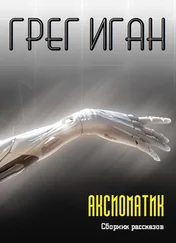
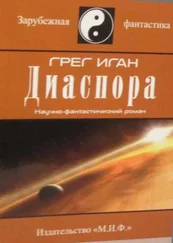
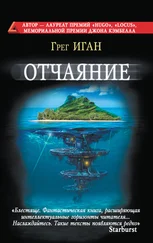
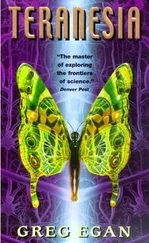
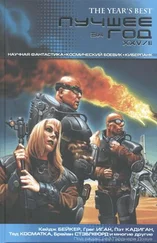
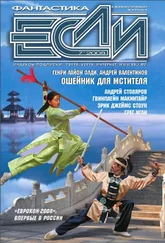
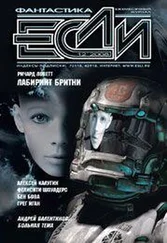
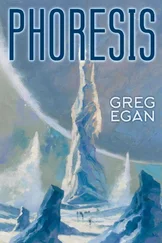
![Грег Иган - Рассказы [компиляция]](/books/419837/greg-igan-rasskazy-kompilyaciya-thumb.webp)
